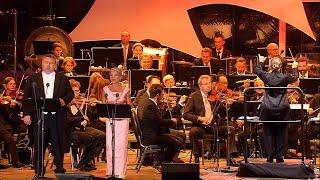
Surat Al-Masad (The Palm Fiber, Flame) | Mishary Rashid Alafasy | مشاري بن راشد العفاسي | سورة المسد
➜ Support Our Mission:
❱ PayPal: https://bit.ly/AYAT_PayPal
❱ GoFundMe: https://www.gofundme.com/f/ayatofficial
❱ Become A Patron: https://www.patreon.com/ayat
➜ Social Media:
❱ Subscribe Now: https://bit.ly/2MQ4cBe
❱ Instagram: https://www.instagram.com/islamicagram/
❱ Facebook: https://www.facebook.com/AYAT.officiaI
❱ TikTok: https://www.tiktok.com/@AYAT.official
❱ Twitter: https://twitter.com/AYAT_officiaI
❱ Telegram: https://t.me/AYAT_official
_________________________________________________________
00:00 Intro
00:17 Tabbat yada abee lahabin watab
00:25 Ma aghna AAanhu maluhuwama kasab
00:32 Sayasla naran thatalahab
00:38 Wamraatuhu hammalata alhatab
00:44 Fee jeediha hablun min masad
_________________________________________________________
Theme and Subject-Matter:
This is the only place in the Qur'an where a person from among the enemies of Islam has been condemned by name, even though in Makkah, as well as in Madinah after the migration, there were many people who were in no way less inimical to Islam and the Prophet Muhammad (pbuh) than Abu Lahab. The question is, what was the special trait of the character of this person, which became the basis of this condemnation by name? To understand this it is necessary that one understand the Arabian society of that time and the role that Abu Lahab played in it.
In ancient days there prevailed chaos, confusion, bloodshed and plunder throughout Arabia. The condition for centuries was that a person could have no guarantee of the protection of life, honor and property except with the help and support of his clansmen and blood relations. Therefore, silah rehmi (good treatment of the kindred) was esteemed most highly among the moral values of the Arabian society and the breaking off of connections with kindred was regarded as a great sin. Under the influence of this same Arabian tradition, the Prophet (pbuh) began to preach the message of Islam. The other clans of Qureysh and their chiefs resisted and opposed him tooth and nail, but the Bani Hashim and the Bani Al-Muttalib (children of Al-Muttalib, brother of Hashim) not only did not oppose him but continued to support him openly, even though most of them had not yet believed in his Prophethood.
The other clans of Qureysh regarded this support by the Prophet's blood relations as perfectly in accordance with the moral traditions of Arabia. That is why they never taunted the Bani Hashim and the Bani Al-Muttalib, even though they seemingly had abandoned their ancestral faith by supporting a person who was preaching a new faith. They knew and believed that they could in no case hand over an individual of their clan to his enemies, and their support and aid of a clansman was perfectly natural in the sight of the Qureysh and the people of Arabia.
This moral principle, which the Arabs even in the pre-Islamic days of ignorance, regarded as worthy of respect and inviolable was broken only by one man in his enmity of Islam, and that was Abu Lahab, son of Abdul Muttalib, an uncle of the Prophet. In Arabia, an uncle represented the father especially when the nephew was fatherless. The uncle was expected to look after the nephew as one of his own children. But this man in his hostility to Islam and love of Kufr trampled over all of the Arab traditions with his actions.
Before the proclamation of Prophethood, two of the Prophet's daughters were married to two of Abu Lahab's sons, Utbah and Utaibah. When the Prophet began to invite people to Islam, Abu Lahab said to both his sons: "I would forbid myself seeing and meeting you until you divorce the daughters of Muhammad (pbuh)." Both of them subsequently divorced their wives.
Whenever the Prophet went to preach the message of Islam, this man followed him and forbade the people to listen to him. Tariq bin Abdullah Al-Muharibi says: "I saw in the fare of Dhul-Majaz the Prophet (pbuh) exhorting the people saying: `O people, say La Ilah ill-Allah, you will attain success.' Behind him there was a man who was casting stones at him until his heels bled and he was telling the people: 'Do not listen to him, he is a liar.' I asked the people who he was. They said he was his uncle, Abu Lahab."
[Reported by Tirmidhi.] [...]
[Continued in 3. Link below]
Source: Malik Surah Introductions
_________________________________________________________
Copyrights:
http://legacy.quran.com/111
http://www.quran411.com/surah-lahab
http://www.alim.org/library/quran/surah/introduction/111/MAL
❱ PayPal: https://bit.ly/AYAT_PayPal
❱ GoFundMe: https://www.gofundme.com/f/ayatofficial
❱ Become A Patron: https://www.patreon.com/ayat
➜ Social Media:
❱ Subscribe Now: https://bit.ly/2MQ4cBe
❱ Instagram: https://www.instagram.com/islamicagram/
❱ Facebook: https://www.facebook.com/AYAT.officiaI
❱ TikTok: https://www.tiktok.com/@AYAT.official
❱ Twitter: https://twitter.com/AYAT_officiaI
❱ Telegram: https://t.me/AYAT_official
_________________________________________________________
00:00 Intro
00:17 Tabbat yada abee lahabin watab
00:25 Ma aghna AAanhu maluhuwama kasab
00:32 Sayasla naran thatalahab
00:38 Wamraatuhu hammalata alhatab
00:44 Fee jeediha hablun min masad
_________________________________________________________
Theme and Subject-Matter:
This is the only place in the Qur'an where a person from among the enemies of Islam has been condemned by name, even though in Makkah, as well as in Madinah after the migration, there were many people who were in no way less inimical to Islam and the Prophet Muhammad (pbuh) than Abu Lahab. The question is, what was the special trait of the character of this person, which became the basis of this condemnation by name? To understand this it is necessary that one understand the Arabian society of that time and the role that Abu Lahab played in it.
In ancient days there prevailed chaos, confusion, bloodshed and plunder throughout Arabia. The condition for centuries was that a person could have no guarantee of the protection of life, honor and property except with the help and support of his clansmen and blood relations. Therefore, silah rehmi (good treatment of the kindred) was esteemed most highly among the moral values of the Arabian society and the breaking off of connections with kindred was regarded as a great sin. Under the influence of this same Arabian tradition, the Prophet (pbuh) began to preach the message of Islam. The other clans of Qureysh and their chiefs resisted and opposed him tooth and nail, but the Bani Hashim and the Bani Al-Muttalib (children of Al-Muttalib, brother of Hashim) not only did not oppose him but continued to support him openly, even though most of them had not yet believed in his Prophethood.
The other clans of Qureysh regarded this support by the Prophet's blood relations as perfectly in accordance with the moral traditions of Arabia. That is why they never taunted the Bani Hashim and the Bani Al-Muttalib, even though they seemingly had abandoned their ancestral faith by supporting a person who was preaching a new faith. They knew and believed that they could in no case hand over an individual of their clan to his enemies, and their support and aid of a clansman was perfectly natural in the sight of the Qureysh and the people of Arabia.
This moral principle, which the Arabs even in the pre-Islamic days of ignorance, regarded as worthy of respect and inviolable was broken only by one man in his enmity of Islam, and that was Abu Lahab, son of Abdul Muttalib, an uncle of the Prophet. In Arabia, an uncle represented the father especially when the nephew was fatherless. The uncle was expected to look after the nephew as one of his own children. But this man in his hostility to Islam and love of Kufr trampled over all of the Arab traditions with his actions.
Before the proclamation of Prophethood, two of the Prophet's daughters were married to two of Abu Lahab's sons, Utbah and Utaibah. When the Prophet began to invite people to Islam, Abu Lahab said to both his sons: "I would forbid myself seeing and meeting you until you divorce the daughters of Muhammad (pbuh)." Both of them subsequently divorced their wives.
Whenever the Prophet went to preach the message of Islam, this man followed him and forbade the people to listen to him. Tariq bin Abdullah Al-Muharibi says: "I saw in the fare of Dhul-Majaz the Prophet (pbuh) exhorting the people saying: `O people, say La Ilah ill-Allah, you will attain success.' Behind him there was a man who was casting stones at him until his heels bled and he was telling the people: 'Do not listen to him, he is a liar.' I asked the people who he was. They said he was his uncle, Abu Lahab."
[Reported by Tirmidhi.] [...]
[Continued in 3. Link below]
Source: Malik Surah Introductions
_________________________________________________________
Copyrights:
http://legacy.quran.com/111
http://www.quran411.com/surah-lahab
http://www.alim.org/library/quran/surah/introduction/111/MAL
Тэги:
#Islam #Allah #Muhammad #Mohammed #Quran #Koran #Recitation #Rezitation #Beautiful #Calm #Amazing #Religion #Deen #Peace #Sunnah #God #Messenger #Message #Revelation #Mishary #Mishary_Rashid_Alafasy #Mishary_Alafasy #Emotional #Surah #Al-Masad #Hereafter #Death #Life #Islamic #Reminder #Makkah #Medina #Arabic #Translation #Transliteration #Memorizing #Memorize #Easy #Islamic_Tube #Islamicagram #Truth #Book #Kitab #Holy #Verses #HD #4K #Paradise #HellfireКомментарии:
‘Dark Empath’: a hot new personality
Elliot Sang
How do we navigate trade-offs in life? | Charles Lee at Vanderbilt
The Veritas Forum
Разамбек Жамалов в проекте "Борцовская среда"
Арип Ибрагимов
Lisa Noticed Me
ZHC
Bagad de Lann Bihoué dans les rues de Stenay
julien Jacquet
2023 NONSTOP DISCO REMIX MASAKIT PA SA FIRST TIME
CMM MUSIC - DISCO
Sieczyński: Wien, du Stadt meiner Träume / Kamensek / Horak / Schneider / DRP
Deutsche Radio Philharmonie


























